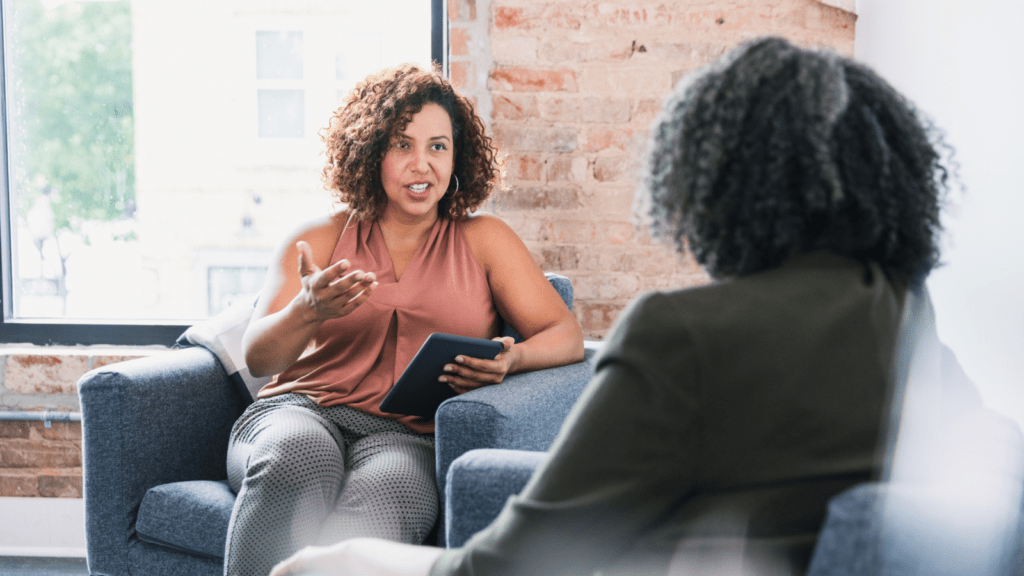What Happens in Your First Counselling Session in India

What Happens in Your First Counselling Session in India Nervous about therapy? Here’s what to expect in your first counselling session. Introduction: The First Step Is Always the Hardest For many Indians, the idea of going for counselling for the first time feels overwhelming. You may find yourself asking: “What really happens in a therapy session in India?” or “Will the therapist judge me?” or even “Do I need to share everything in the first meeting?” These concerns are normal. Therapy is still surrounded by cultural stigma in many parts of India, and most of us have grown up without open conversations about mental health. But the good news is that the first counselling session is not about pressure, it’s about beginning a journey of trust, self-discovery, and healing. Whether you live in a busy city like Delhi, Mumbai, Bangalore, or Pune, or a smaller town where access to therapists is just beginning to grow, the first therapy session in India follows a similar structure: it helps the therapist understand you, and it helps you understand the process. This blog will give you a clear, step-by-step guide on what to expect in your first counselling session in India, addressing everything from confidentiality to cultural differences, while highlighting how platforms like PsyQuench make therapy more accessible to everyone. Why People in India Seek Counselling: Common Concerns Before diving into what happens in the first session, it helps to know why people reach out for therapy in the first place. Some of the most common concerns include: These challenges may bring someone to therapy, but the first session is about more than problems, it’s about creating a safe space to express, reflect, and begin exploring solutions. Step-by-Step: What Happens in Your First Counselling Session in India 1. A Warm Welcome and Setting the Tone Therapists in India, whether in private clinics in Delhi or online platforms in Pune, usually begin with an introduction. They may talk about their background, their approach to therapy, and how sessions generally flow. This is to ease your nerves and help you feel more comfortable. Some therapists even begin with casual conversation, like asking about your day, to help you settle before diving into deeper questions. 2. Confidentiality Explained One of the biggest fears first-time clients in India express is: “Will my family find out what I share here?” Your therapist will clarify that sessions are confidential. This means what you share will not be disclosed, except in rare cases where your safety or someone else’s safety is at risk. For example, if you’re in Bangalore, where therapy sessions often happen online due to tech-friendly infrastructure, the confidentiality clause remains the same as in in-person sessions in Delhi or Mumbai. 3. Sharing Your Story The first session often focuses on why you’re seeking therapy. Don’t worry, you don’t need to explain everything perfectly. Some people start by talking about a specific incident (like a panic attack before an exam), while others talk about a general feeling (like persistent sadness). Therapists in India understand that opening up takes time, especially given the cultural context where mental health discussions are often new. 4. Assessment and Goal Setting Therapists may ask: They may also ask about your background: family, work, or studies. For instance, a college student in Pune might be asked about exam stress, while a working professional in Mumbai may be asked about work-life balance. The purpose isn’t to interrogate but to build a holistic understanding. 5. Explaining Therapy Approaches Depending on your needs, your therapist may introduce you to different approaches: Therapists may explain how these approaches could help you, so you’re aware of the journey ahead. 6. Addressing Questions You May Have Clients in India often ask in their first session: Your therapist will likely answer these honestly, while reminding you that therapy is a process, not a quick fix. 7. Planning Next Steps By the end of the first session, your therapist may outline what the next few sessions might look like. They may also ask if you’d like to book a follow-up session or take some time to think. The Role of Culture in First Sessions in India Therapy in India is unique because of cultural factors: These cultural nuances shape the flow of the first session. Online vs In-Person First Sessions in India PsyQuench offers both options, helping you choose what works best for your lifestyle. For broader context on mental health standards, see WHO’s Mental Health Resources. How PsyQuench Supports Your First Counselling Experience At PsyQuench, you don’t just book a therapist, you’re guided through a complete support system: Summary The first counselling session in India is about creating a safe space, understanding your concerns, and planning next steps. Whether in Delhi, Mumbai, Bangalore, or Pune, therapists aim to build trust, explain confidentiality, and guide you gently into the therapeutic journey. Conclusion If you’ve been hesitant about starting therapy because you don’t know what to expect, remember: the first session is simply a conversation, not a diagnosis. It’s about being heard without judgment, perhaps for the first time. At PsyQuench, we believe therapy should be accessible, stigma-free, and empowering. Whether you’re a student, working professional, or someone navigating personal struggles, your first session can mark the beginning of transformation. Take the first step: Book your safe space at PsyQuench. FAQs 1. How long does a first counselling session in India last?Most first sessions last 45–60 minutes, depending on the therapist. 2. Do I have to share everything in the first session?No. You can share at your own pace. The first session is about comfort, not pressure. 3. How much does a first therapy session cost in India?Costs vary between ₹800–₹2500 per session, depending on the city and therapist. 4. Is online therapy effective for first sessions?Yes, many Indians start therapy online, especially in tech-forward cities like Bangalore and Pune. 5. Can I choose my therapist’s gender?Yes. Many clients, especially women, prefer female therapists. Platforms like PsyQuench allow you to filter your
What Happens in Your First Counselling Session at PsyQuench

What Happens in Your First Counselling Session at PsyQuench Nervous about therapy? Here’s a breakdown of what to expect in your first session. Starting therapy for the first time can feel overwhelming. Many people worry: “What will I say? Will I be judged? What if I cry?” At PsyQuench, we understand that stepping into a therapy room or logging into your first online session takes courage. That’s why we make sure your very first therapy session in India feels safe, welcoming, and pressure-free.In this blog, we’ll walk you through exactly what happens in that first session, so you can arrive feeling informed, supported, and ready to begin your counselling experience. Why the First Session Matters The first counselling session isn’t about fixing everything immediately. Instead, it sets the tone for your therapeutic journey. Think of it as a gentle orientation: meeting your therapist, sharing your story at your pace, and asking any questions you have.At PsyQuench, we see the first session as the beginning of a partnership, where you and your therapist decide together what feels important, what your goals might look like, and what support you truly need. A Warm Welcome, Not an Interrogation When you arrive (online or in person), the therapist’s first aim is to help you feel comfortable. You might be offered water, given a few moments to settle in, or asked how you’re feeling today.Your therapist may briefly introduce themselves, sharing their approach, confidentiality policy, and what therapy can (and can’t) offer. This isn’t about rushing into painful topics, but about building a space where trust can grow. Clients often say they were surprised at how relaxed the start felt, more like a conversation than a clinical exam. Exploring What Brought You Here Your therapist will gently ask what led you to book the session. You might share: If words feel hard, that’s completely normal. Therapists are trained to help you express thoughts and emotions, sometimes even through pauses, metaphors, or simply sitting quietly until you’re ready. Understanding Your Story Beyond current struggles, your therapist may explore: The goal isn’t to analyse or label you, but to see your challenges in context: where they come from, how they feel now, and how they affect daily life. Setting Goals Together Toward the end of the first therapy session in India, your therapist may ask what you hope to achieve. Goals might be clear (“manage panic attacks”) or broad (“feel less stuck”).Together, you’ll discuss what feels realistic: frequency of sessions, therapy style (CBT, person-centred, etc.), and how progress might look. These plans aren’t set in stone, therapy is flexible. But having a shared starting point can make the process feel more purposeful. Your Questions Are Welcome The first session is also your chance to ask: No question is too small. At PsyQuench, we encourage openness; because therapy isn’t something done to you; it’s something done with you. Also Read: Therapist vs Best Friend: Who Gives Better Advice? Emotions May Happen And That’s Okay It’s common to feel nervous, tearful, or even relieved during the first session. Some clients worry they’ll “overshare,” while others fear they won’t know what to say.Therapists expect this. Whatever shows up, laughter, tears, silence, all is welcome. Therapy is a space without judgment, where every emotion has room. Ending the First Session The therapist usually summarises what you’ve shared, reflects on themes they heard, and talks about possible next steps. You’ll also discuss practical details: timing, payment, and whether you’d like to continue.Most clients leave the first session feeling lighter, not because problems are solved, but because starting to talk feels like the first real step forward. Why the First Step Feels Hardest Booking that first appointment often feels harder than attending it. Many clients tell us later: “I almost cancelled because I was so anxious — but I’m glad I didn’t.” Knowing what to expect helps, but what helps most is remembering: therapy is for you, at your pace, and shaped by your voice. Summary The first counselling experience at PsyQuench isn’t about judgment, quick fixes, or medical checklists. It’s a conversation: meeting your therapist, exploring what’s brought you here, and deciding together what healing could look like.Whether you’re coming for anxiety, relationship stress, or just feeling lost, that first session is the start of understanding yourself with compassion. Conclusion Starting therapy can feel intimidating — but you don’t have to do it perfectly. Your first session at PsyQuench is a chance to be heard without pressure, ask questions without fear, and take a step toward mental clarity and emotional balance.In the end, it’s not about being ready; it’s about being willing to begin. Ready to experience therapy for yourself? Book your first session today – no judgment, just support from professionals who care. FAQs Q1: Do I need to prepare before my first session?No special prep is needed. Just bring yourself, and if you’d like, note a few things you want to discuss. Q2: Will I have to share everything in the first session?No. You decide what to share and when. Therapy respects your pace. Q3: Are online sessions different?The structure is the same: introduction, exploration, and planning, just via a secure video platform. Q4: Can I bring someone with me?Usually, individual sessions are one-on-one. If you feel very anxious, discuss it with your therapist first. Q5: How long is the first therapy session?Typically about 45–60 minutes. Q6: What if I don’t feel comfortable with my therapist?That’s okay. You can request a different therapist, your comfort is what matters most.





